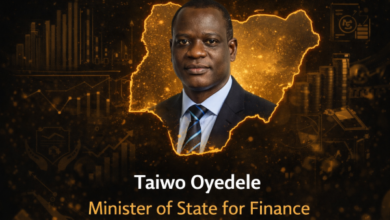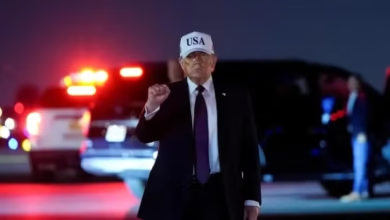CPPE lauds new executive orders, rejects informal sector VAT
 The Centre for Promotion of Private Enterprises (CPPE) has lauded the recent executive orders signed by President Bola Tinubu to improve Nigeria’s business environment.
The Centre for Promotion of Private Enterprises (CPPE) has lauded the recent executive orders signed by President Bola Tinubu to improve Nigeria’s business environment.
The CPPE founder, Dr Muda Yusuf, via a statement on Sunday in Lagos, said the move demonstrated the President’s sensitivity to the predicament of the manufacturing sector.
BRANDPOWER reports that the President had recently signed four executive orders including deferring the commencement of the Finance Act 2023 to Sept. 1 and that of Excise Tariff Amendment Order to Aug. 1.
He also suspended excise tax on single use plastics, import tax adjustment tariffs on some vehicles and five per cent tax on telecommunications services and some locally made manufactured goods.
According to Yusuf, the move will normalise policy implementation processes consistent with the national tax policy and best practice principles.
He said the recent reforms by Tinubu-led administration, especially the fuel subsidy removal and the adoption of a market reflective exchange rate regime, had significant fiscal consolidation outcomes.
The CPPE founder, however, proposed some dimensional channels of utilization of these additional revenues.
He said that all the three tiers of government would be beneficiaries of the increase in revenue – Federal, States and Local Governments.
“The first is to commit part of the revenues to fill the holes created by the recurring fiscal deficit to gradually reduce fiscal deficit, and the growing burden of debt.
“The second is to increase wages of public sector workers and the three tiers of government to mitigate current hardship inflicted by fuel subsidy removal and to enhance their purchasing power, ” he said.
The third channel, he said, was to provide reliefs to the populace by giving generous import duty concessions on agricultural sector inputs and machineries.
Yusuf urged government to consider generous fiscal incentives for food processing companies to reduce the cost of staple foods, and scrapping of import duty on industrial machineries and equipment.
According to him, other sectors deserving of tariff concessions are health, power generation, renewable power equipment, and machineries for petroleum refining.
He also said that import duty on 15-seater passenger buses and above, on cars of 2000cc engine capacity and below should be slashed by 50 per cent to reduce high transportation cost.
“We are confident these concessions would not materially affect the revenue of the government.
“If anything , it would reduce the rate of the smuggling of vehicles into the country,” he said.
Yusuf advised against the decision of the Federal Inland Revenue Service (FIRS) to undertake Value Added Tax (VAT) collection in the informal sector.
He said the economics of collection does not support the move, adding that the cost of collection would be much more than the amount that could be collected.
Yusuf added that over 98 per cent of the informal sector traders were microenterprises who do not fall within the threshold of entities that are liable for VAT payment.
He furthered that the informal sectors were already paying all manner of levies to local governments and several non-state actors, and that government needs not burden them with additional taxes.
“The informal sector associations are highly fragmented and it would be impractical to develop a partnership framework with the market associations for the collection as contemplated by the FIRS.
“The FIRS should think of more creative ways of taxing the informal sector players in ways that will be more cost effective, less disruptive and with minimal political cost, ” he said.
He advised the FIRS to adopt the principle of focusing on the few players and individuals that could give the highest revenue yield.
“This is a model appropriate for an economy with high level of inequality like ours,” he said.










